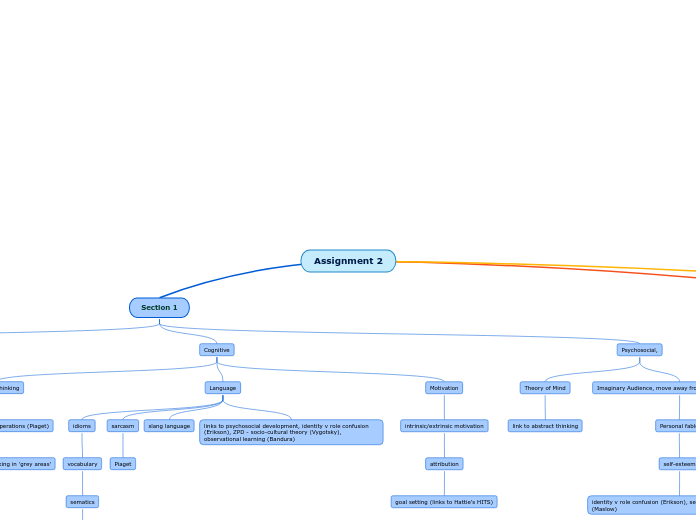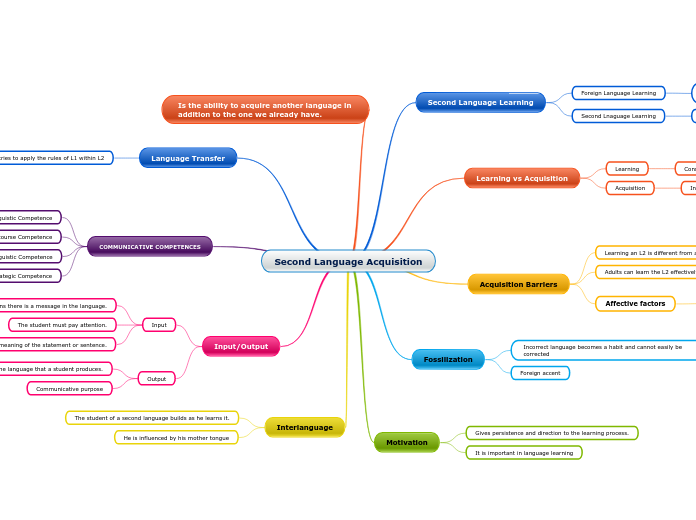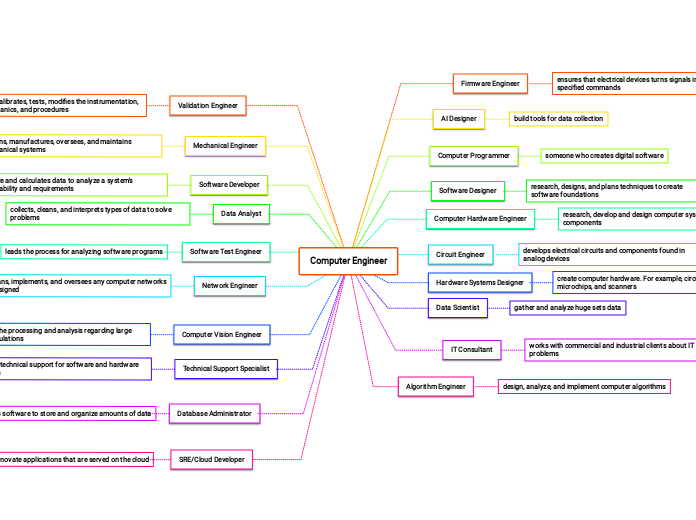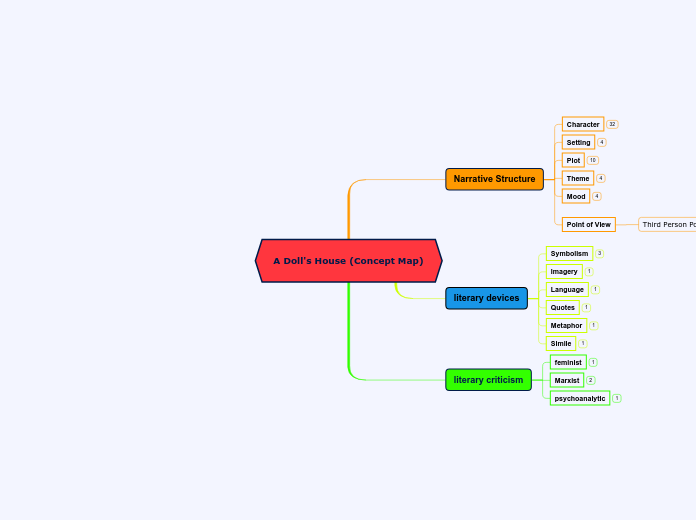Assignment 2
Section 3
Identify and describe an issue, give rates of prevalence, prove that it is an issue.
Peer influences, low self esteem, bullying, atypical puberty, anxiety, depression, body image, eating disorders, cyber bullying, sexting, consent, suicide, drug, alcohol, risk taking, teen pregnancy,
Relate it to developmental domains.
Give strategies for how a teacher can respond, could include whole school strategies, classroom practices, or referal processes
Section 2
Piaget, Vygotsky, Erikson, Bandura, Skinner, Maslow, Pavolv, Gotleib, Bronfenbrenner, Frued,
Describe the theory
link to other theorists
Evaluate the theory
Implications for teaching (can this theory be used for adolescents today?)
Section 1
Psychosocial,
Imaginary Audience, move away from family towards peers
Personal fable
self-esteem
identity v role confusion (Erikson), sense of belonging (Maslow)
Theory of Mind
link to abstract thinking
Cognitive
Motivation
intrinsic/extrinsic motivation
attribution
goal setting (links to Hattie's HITS)
Language
links to psychosocial development, identity v role confusion (Erikson), ZPD - socio-cultural theory (Vygotsky), observational learning (Bandura)
slang language
sarcasm
Piaget
idioms
vocabulary
sematics
pragmatics
Abstract thinking
concrete to formal operations (Piaget)
morality, ethics, thinking in 'grey areas'
Physical, One of the major physical development milestone in adolescence is.....
Gross & fine motor skills
Endocrine system
PUBERTY, hormones, menarche, semenarche, growth spurt (asynchronous development), primary and secondary sex characteristics,
Synaptic pruning, myelination p191
links to abstract thought









